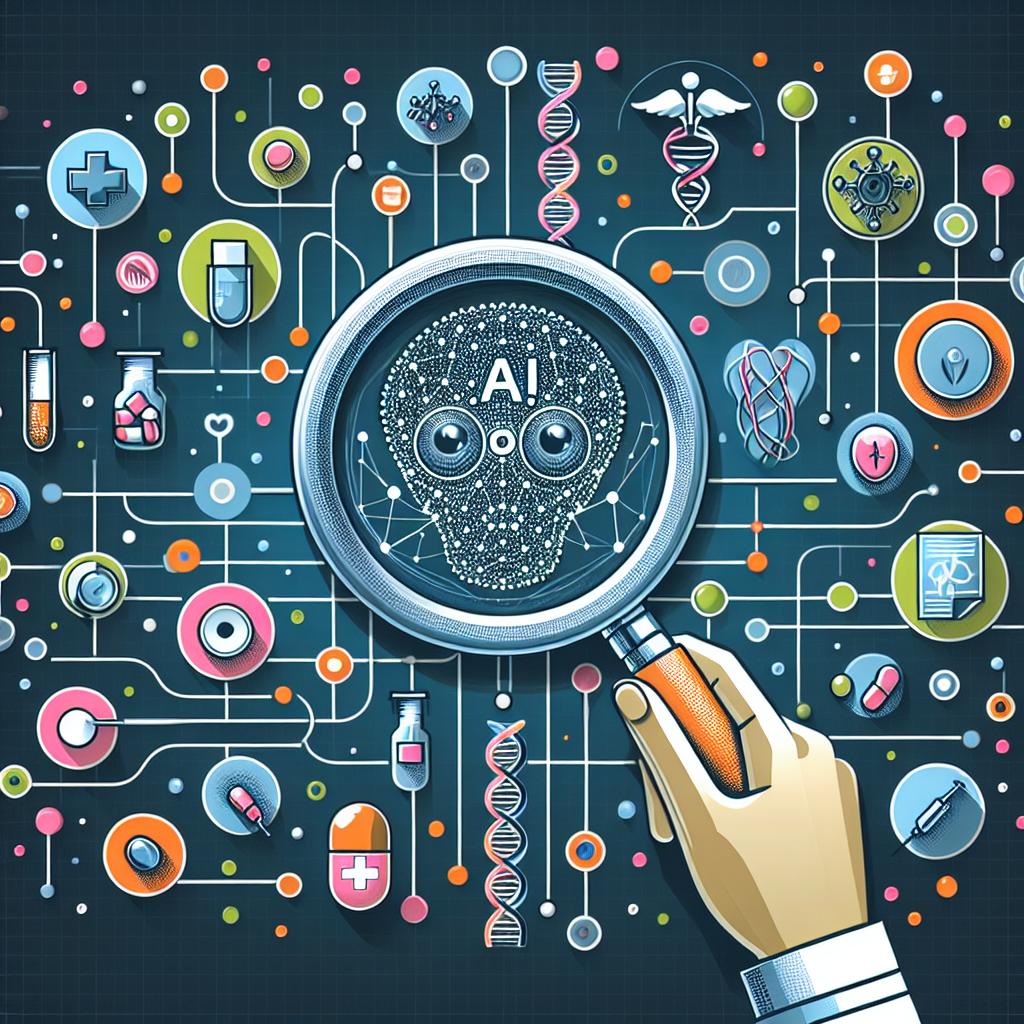Advances in technology have revolutionized the field of medicine, particularly in the area of personalized medicine. Personalized medicine, also known as precision medicine, is a medical model that uses patient-specific information, such as genetics, lifestyle, and environment, to tailor treatment plans and therapies to individual patients. This approach allows for more targeted and effective treatments, leading to better outcomes for patients.
One of the key technologies driving the advancement of personalized medicine is artificial intelligence (AI). AI platforms are being used to analyze vast amounts of data and provide insights that can inform personalized treatment decisions. In this article, we will take a closer look at AI platforms for personalized medicine, exploring how they are being used, their benefits and challenges, and what the future holds for this exciting field.
How AI Platforms Are Being Used in Personalized Medicine
AI platforms are being used in a variety of ways in personalized medicine, from analyzing genetic data to predicting treatment outcomes. One of the key areas where AI is making a significant impact is in the analysis of genomic data. Genomic data, which includes information about an individual’s DNA, can provide valuable insights into a person’s risk for certain diseases, as well as how they are likely to respond to different treatments.
AI platforms can analyze this data to identify patterns and correlations that may not be apparent to human researchers. By combining genomic data with other types of patient-specific information, such as medical history and lifestyle factors, AI platforms can generate personalized treatment recommendations that are tailored to each individual patient.
AI platforms are also being used to predict treatment outcomes and identify potential side effects. By analyzing data from past treatments and outcomes, AI platforms can help doctors make more informed decisions about which treatments are likely to be most effective for a particular patient. This can help reduce the trial-and-error approach to treatment that is common in medicine, leading to better outcomes for patients.
Benefits of AI Platforms for Personalized Medicine
There are several benefits to using AI platforms in personalized medicine. One of the key advantages is the ability to analyze large amounts of data quickly and efficiently. AI platforms can process vast amounts of data in a fraction of the time it would take a human researcher, allowing for more comprehensive analysis and more personalized treatment recommendations.
AI platforms can also help doctors make more accurate and informed decisions about treatment options. By analyzing data from a wide range of sources, AI platforms can identify patterns and correlations that may not be apparent to human researchers. This can help doctors tailor treatment plans to each individual patient, leading to better outcomes and fewer side effects.
Another benefit of AI platforms for personalized medicine is the potential to improve patient outcomes. By providing personalized treatment recommendations based on individual patient data, AI platforms can help doctors choose the most effective treatments for each patient. This can lead to better outcomes, reduced hospitalizations, and improved quality of life for patients.
Challenges of AI Platforms for Personalized Medicine
While AI platforms hold great promise for personalized medicine, there are also several challenges that must be addressed. One of the key challenges is the need for high-quality data. AI platforms rely on large amounts of data to generate accurate insights and recommendations. If the data used is incomplete, inaccurate, or biased, the recommendations generated by AI platforms may not be reliable.
Another challenge is the need for transparency and interpretability. AI algorithms can be complex and difficult to understand, making it challenging for doctors to trust the recommendations generated by AI platforms. To address this challenge, researchers are working to develop AI algorithms that are more transparent and interpretable, allowing doctors to understand how recommendations are generated and make more informed decisions.
Ethical considerations are also a concern when using AI platforms in personalized medicine. AI algorithms can inadvertently perpetuate biases in healthcare, leading to disparities in treatment outcomes for certain populations. Researchers are working to develop AI algorithms that are fair and unbiased, but this remains a challenge that must be addressed as AI platforms are integrated into clinical practice.
The Future of AI Platforms for Personalized Medicine
Despite the challenges, the future of AI platforms for personalized medicine looks promising. Researchers are working to address the challenges of data quality, transparency, and ethics, and are making great strides in developing AI algorithms that are more accurate and reliable.
In the future, AI platforms are likely to play an even greater role in personalized medicine. As more data becomes available and AI algorithms become more sophisticated, doctors will be able to generate more accurate and personalized treatment recommendations for their patients. This could lead to a revolution in healthcare, with more targeted and effective treatments that improve outcomes for patients and reduce healthcare costs.
FAQs
Q: How are AI platforms used in personalized medicine?
A: AI platforms are used to analyze patient-specific data, such as genomic data, medical history, and lifestyle factors, to generate personalized treatment recommendations for individual patients.
Q: What are the benefits of AI platforms for personalized medicine?
A: AI platforms can help doctors make more accurate and informed treatment decisions, leading to better outcomes for patients. They can also help reduce the trial-and-error approach to treatment and improve patient outcomes.
Q: What are the challenges of using AI platforms in personalized medicine?
A: Challenges include the need for high-quality data, transparency and interpretability of AI algorithms, and ethical considerations related to bias and fairness in healthcare.
Q: What does the future hold for AI platforms in personalized medicine?
A: The future looks promising, with researchers working to address the challenges and develop more accurate and reliable AI algorithms. In the future, AI platforms are likely to play an even greater role in personalized medicine, leading to more targeted and effective treatments for patients.

